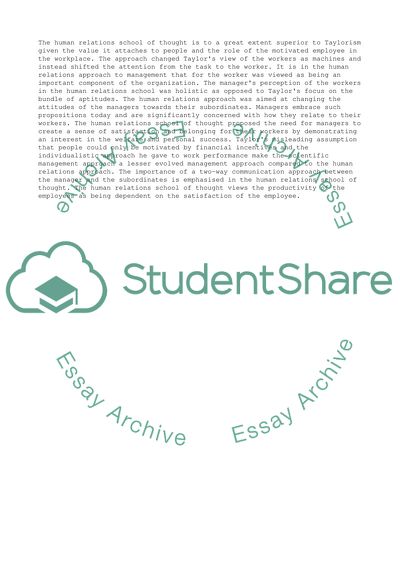Cite this document
(“Human Relations School of Thought compared to a Taylorist Fordist Essay”, n.d.)
Human Relations School of Thought compared to a Taylorist Fordist Essay. Retrieved from https://studentshare.org/management/1701393-the-human-relations-school-of-thought-compared-to-a-taylorist-fordist-perspective
Human Relations School of Thought compared to a Taylorist Fordist Essay. Retrieved from https://studentshare.org/management/1701393-the-human-relations-school-of-thought-compared-to-a-taylorist-fordist-perspective
(Human Relations School of Thought Compared to a Taylorist Fordist Essay)
Human Relations School of Thought Compared to a Taylorist Fordist Essay. https://studentshare.org/management/1701393-the-human-relations-school-of-thought-compared-to-a-taylorist-fordist-perspective.
Human Relations School of Thought Compared to a Taylorist Fordist Essay. https://studentshare.org/management/1701393-the-human-relations-school-of-thought-compared-to-a-taylorist-fordist-perspective.
“Human Relations School of Thought Compared to a Taylorist Fordist Essay”, n.d. https://studentshare.org/management/1701393-the-human-relations-school-of-thought-compared-to-a-taylorist-fordist-perspective.


